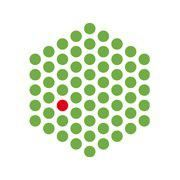 CABANA workshop: Introduction to next-generation sequencing
CABANA workshop: Introduction to next-generation sequencing
Date: 18 - 20 March 2019
This course will provide an introduction to the technology, data analysis, tools and resources for next generation sequencing (NGS) data.
Topics will be delivered using a mixture of lectures, practical sessions and open discussions. Practical work during the course will use small, example data-sets and there will not be scope to analyse personal data. The course content makes use of data derived mainly from eukaryotic non-model organisms in a biodiversity context.
Venue: LANGEBIO, Cinvestav Libramiento Norte Carretera Leon Km 9.6
Region: Irapuato
Country: Mexico
Postcode: 36821
Target audience: This course is suitable for postgraduate wet-lab researchers at any career stage within Latin America who are working with and/or generating their own transcriptomic datasets. Participants will require a basic knowledge of the Unix command line and the R statistical package. We recommend these free tutorials: Basic introduction to the Unix environment: www.ee.surrey.ac.uk/Teaching/Unix Introduction and exercises for Bio-Linux 7: http://nebc.nerc.ac.uk/support/training/course-notes/past-notes/intro-bl7 Basic R concept tutorials: www.r-tutor.com/r-introduction Participants without basic knowledge of these resources will have difficulty in completing the practical sessions. We strongly recommend that you make every effort to access these materials and other training available online or within your host institute to best prepare you for the course. A number of travel fellowships are available for this course - early-stage researchers and researchers from underrepresented groups are especially encouraged to apply for CABANA travel fellowships. You can apply for travel fellowships via the course application form.
Capacity: 25
Activity log

 EMBL-EBI
EMBL-EBI
